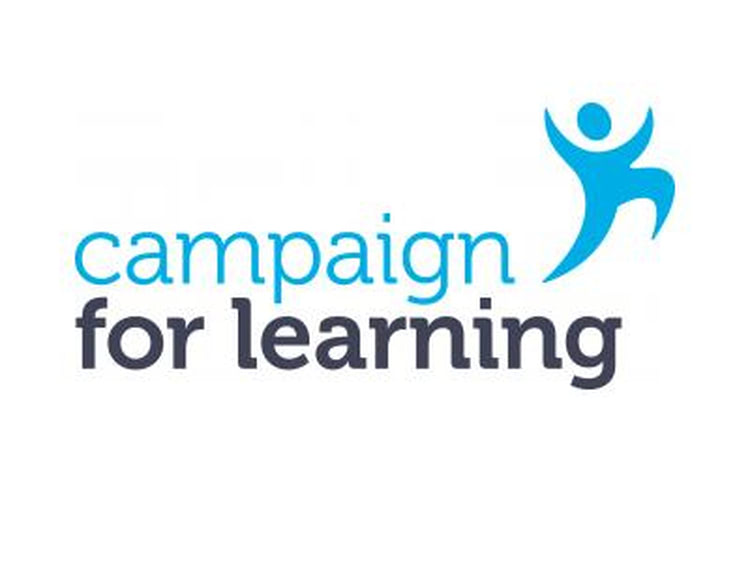Revolutionary Forces: Reforms for a Revolutionary Post-16 White Paper

#Post16RevolutionaryReforms – The Campaign for Learning has today (21 Sept) launched a new pamphlet – Reforms for a Revolutionary Post-16 White Paper.
It is the second release in the Revolutionary Forces series. Commissioned by the Campaign for Learning, it brings together different perspectives and proposed reforms for the post-16 education and training system in a series of expert articles by stakeholders, think-tanks and educational professionals.
Building on the recommendations outlined in the first paper for flexible reforms that support economic and social renewal, the new paper takes a deeper look at which areas need to be addressed including:
- Devolution and 16-19 funding
- Sustainable apprenticeship funding
- Universal Credit and maintenance support to support adult training and retraining
- New full and part-time Level 4-5 technical education pathways
- More technical degrees and Level 6 First degrees
- Improving Level 3 provision for learners post-16
- A strategy for lifelong learning to support wellbeing and employability
- FE workforce development
The contributions are:
- David Hughes, Association of Colleges – A New National Post-16 Education and Skills Strategy
- John Widdowson, Former College Principal – Higher Technical Education: An Alternative to Full-Time Three-Year Degrees
- Ewart Keep, University of Oxford – Re-Discovering the ‘Employment and Part-Time Higher Technical Education’ Model
- Adrian Anderson, UVAC – Just More Level 4-7 Apprenticeships, Technical Education and First Degrees
- James Kewin, Sixth Form Colleges Association – Level 4-5 Technical Education and the 16-18 System
- Becci Newton, Institute for Employment Studies – Assisting 16-24 Year Olds without a Level 3
- Jane Hickie, Association of Employment and Learning Providers – Achieving Social Justice through Apprenticeships and Adult Education
- Kathleen Henehan, Resolution Foundation – Rethinking Adult Training and Retraining
- Julie Tam, Universities UK – Upskilling and Reskilling through Modularised Higher Education
- Fiona Aldridge, Learning and Work Institute – Revolutionising Access to Adult Upskilling and Reskilling
- Alissa Dhaliwal, CBI – Strategic Partnership and Workforce Skills
- Iain Murray, TUC – Social Partnership and Workforce Skills
- Matt Waddup, University and College Union – A Broad View of Further Education
- David Russell, Education and Training Foundation – Transforming FE Teaching as a Profession
- Susan Pember, HOLEX – A Government-Wide Lifelong Learning Strategy
- Andy Westwood, University of Manchester – What Does ‘Revolutionary’ Really Look Like?
- Key themes by Mark Corney, Policy Consultant, Campaign for Learning
 Julia Wright, National Direct at Campaign for Learning said:
Julia Wright, National Direct at Campaign for Learning said:
“Post-16 education and training is complex and diverse in nature and has many moving parts. Revolutionary change in one can result in revolutionary consequences for others.
“Our aim at Campaign for Learning during this challenging time is to bring together stakeholders in the post-16 sector to share ideas and debate proposals which improve opportunities for learners, employers and communities. We’re delighted to publish this insightful collection of essays which demonstrates different – and indeed competing – perspectives on the post-16 system and what the upcoming Government white paper could include.
“We invite ministers and officials to carefully consider the reforms proposed by each contributor as they finalise their plans for post-16 education and training.”
 Speaking to the Education Select Committee in April, Gavin Williamson said:
Speaking to the Education Select Committee in April, Gavin Williamson said:
“The FE white paper is an area of the department’s work that I think could be really revolutionary to drive reform in this vital sector.”
In a speech, hosted by the Social Market Foundation in July, Gavin Clarified his statement:
“Across our entire post-16 sector, we need a much stronger alignment with the economic and societal needs of the nation. My personal commitment is to put further and technical education at the heart of our post-16 education system.
“This autumn, I will be publishing a White Paper that will set out our plans to build a world-class German-style further education system in Britain, and level up skills and opportunities. Our mantra must be Further Education, Further Education, Further Education. The tragedy is that for decades, we’ve forgotten about half of our education system. We need fundamental change, not just tinkering at the edges.”
Speaking to Universities UK members in September, Gavin explained how he wants to see universities end their preoccupation with three-year bachelors’ degrees:
“[Universities] are a crucial part of the post-16 education landscape, that includes further education and apprenticeships, all of which give young people a real opportunity to enhance their career pathways and options after they leave school.
“We have already announced that, over the next few years, we will be establishing a system of higher technical education where learners and employers can have confidence in high-quality courses that provide the skills they need to succeed in the workplace, whether they are taught in a further education college, a university or an independent training provider.
“Of course, a large proportion of this will be delivered in our great further education colleges, but what I also want to see is for universities to end their preoccupation with three-year bachelors’ degrees and offer far more higher technical qualifications and apprenticeships. These would be more occupation focused and provide a better-targeted route for some students, and benefit employers and the economy.”
‘Revolutionary Forces’In the immediate aftermath of the Covid-19 pandemic, it is easy to forget that there were wider revolutionary forces at work on the UK’s economy before the virus outbreak. Issues such as Brexit, the rise of automation in the workplace, longer working lives, and poor UK productivity have brought into even sharper focus, education and skills. NCFE and Campaign for Learning (CfL), published the first in the series of ‘Revolutionary Forces’ discussion papers on 6 July 2020. In this Revolutionary Forces series different perspectives and proposed reforms for the post-16 education and training system have been brought together in one pamphlet, from expert stakeholders, think-tanks and educational professionals. Building on the recommendations outlined in the first paper for flexible reforms that support economic and social renewal, this new paper, “Reforms for a Revolutionary Post-16 White Paper“, takes a deeper look at which areas need to be addressed. The authors are:
|












Responses